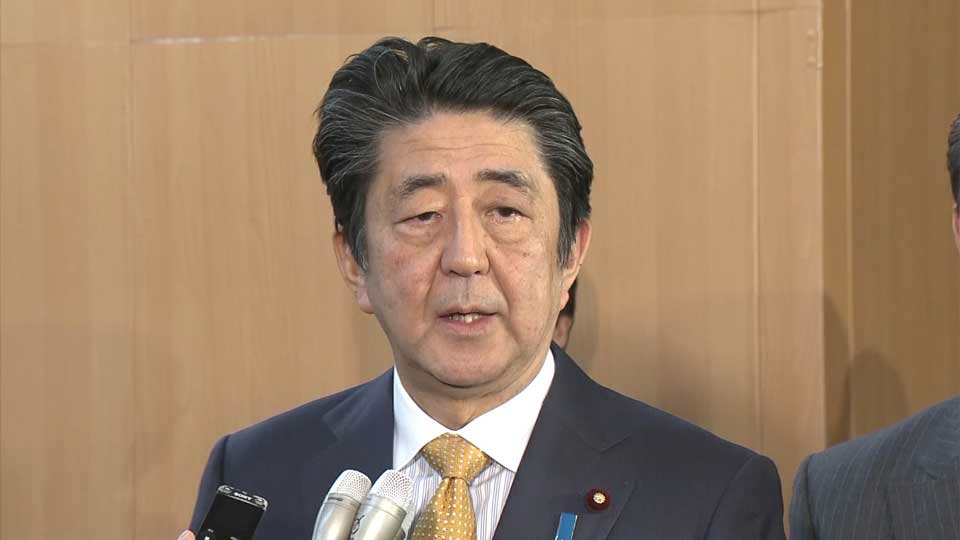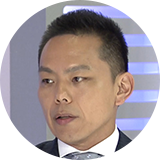Behind Seoul's last-minute move

At 6:00 p.m. on November 22, Kim You-geun, the deputy director of the South Korean presidential national security office, announced that the South Korean government decided to conditionally suspend its notice to end GSOMIA with Japan and that the Japanese government had expressed its understanding.
One of the reasons Seoul changed its stance at the last minute may have been strong pressure from Washington.
In the week before last, top US military officials, including Secretary of Defense Mark Esper and the Chairman of the Joint Chiefs of Staff Mark Milley, visited South Korea to meet with their counterparts. The visits were for an annual meeting of military officials of both countries, but the US officials used the opportunity to call for the pact to be kept alive.

US Secretary of State Mike Pompeo also urged South Korea to continue the pact during a phone call with South Korean Foreign Minister Kang Kyung-wha on Thursday in Seoul. The US State Department says the two top diplomats "pledged to maintain close coordination and reaffirmed the importance of the ROK-Japan relationship."
Another possible reason for Seoul's move is that it may have been offered concessions by Tokyo.
The official from South Korea's national security office had also announced that officials from both countries will hold a high-level policy dialogue over Tokyo's tightening of export controls on three high-tech materials to Seoul. The three materials are used to make semiconductors, which are one of South Korea's key exports.
Japan imposed the curbs in July, citing security concerns over South Korea's trade controls. Shortly after, Japan also removed South Korea from a list of preferential trade partners.
President Moon Jae-in had said his country cannot share military information with a country that tightened export controls over security concerns.

Japan's view
The Japanese government is likely to have feared that the ending of the pact could appear to the international community as if trust had been lost among Japan, the US and South Korea. It therefore prioritized the alliance among the three countries and offered a dialogue on export control -- an issue which Seoul considers significant.
Prime Minister Shinzo Abe told reporters on Friday that coordination with South Korea as well as the US is extremely important. He speculated that Seoul may have made the decision to continue the pact from a strategic point of view.

After Japan and South Korea made an agreement on the issue of those referred to as wartime comfort women in 2015, the two countries showed close coordination with the US to confront provocative actions by North Korea.
Officials in Tokyo may have that in mind as concern is rising that Pyongyang could resume provocative actions as denuclearization talks with Washington remain stalled.
Difficulty of trade talks
Seoul also announced that it will halt a complaint against Japan at the World Trade Organization as long as bilateral dialogue continues.
But the upcoming high-level talks among trade officials are expected to be difficult.
In July, officials from the two countries had a meeting during which the Japanese side explained its decision to tighten export controls on high-tech materials and pointed out South Korea's export control system is insufficient. Officials from Seoul expressed their dissatisfaction with Japan's comments.
And during two rounds of talks at the WTO, officials from both sides failed to iron out their differences over the issue.
Japan's trade ministry says it decided to hold high-level dialogue because South Korea "expressed its willingness to improve its monitoring of trade."
But a senior South Korean presidential official said this comment contradicts the facts, and added that no agreement would have been possible if it were true.
The official said Seoul protested and Tokyo apologized, but stressed that they did agree on holding dialogue.
South Korea is believed to have expressed its doubt over Japan's announcement to avoid criticism that it has made too many concessions to Japan.
Hours after those remarks from the South Korean official, Japan's trade ministry commented on its official Twitter account that the content of its earlier announcement was coordinated with the South Korean side in advance.
A senior official of the ministry told NHK that South Korea's assertion is regrettable and could lead to the undermining of trust.
Such comments make it appear as if there is still a long way to go for both sides to find common ground on the issue.
Relations going forward
South Korea says it could still end GSOMIA at any time if Japan does not compromise on its export controls.
Its stance on bilateral relations remains unchanged.
Moon's administration says it is Japan that made a fundamental cause of the current situation.
A poll conducted in South Korea last week showed that more than 50 percent of respondents agreed with the government's decision to terminate GSOMIA.
The Japanese government says GSOMIA and trade control are separate issues. It also says there are no plans to change the export controls or to remove South Korea from a list of preferential trade partners.
It is important to be aware that Friday's announcements from both governments had no mention of the wartime labor issue, which is one of the reasons for deteriorating ties.

Last year, South Korea's Supreme Court ordered some Japanese companies to compensate South Koreans who say they were forced to work at the companies during World War Two.
The plaintiffs have begun procedures to sell assets seized from the companies.
Japanese Foreign Minister Toshimitsu Motegi said on Saturday that bilateral ties will suffer even further if those assets are sold.
Japan maintains that all claims for wartime compensation were settled in an agreement the two countries signed in 1965 when they normalized relations.
It reiterated that the South Korean government is responsible for resolving the issue.
The speaker of South Korea's National Assembly has outlined a plan to set up a new fund to solicit donations from companies and individuals in both countries to pay "consolation money" to the plaintiffs.
Motegi has not commented on that plan, but he has said the government is willing to listen if Seoul makes concrete proposals that would address the situation.
Tokyo and Seoul have made many exchanges via diplomatic channels on the issue of GSOMIA.
Top diplomats of both countries agreed to coordinate a summit meeting between Prime Minister Abe and President Moon next month when they visit China for a trilateral summit.
Both sides should keep making an effort to communicate actively to make a change.

